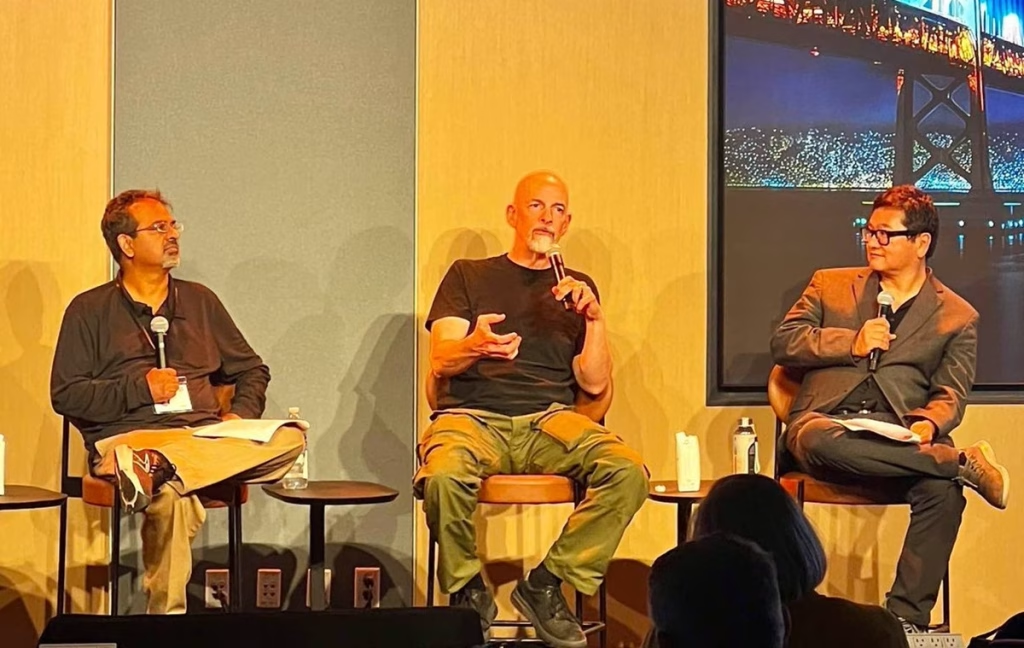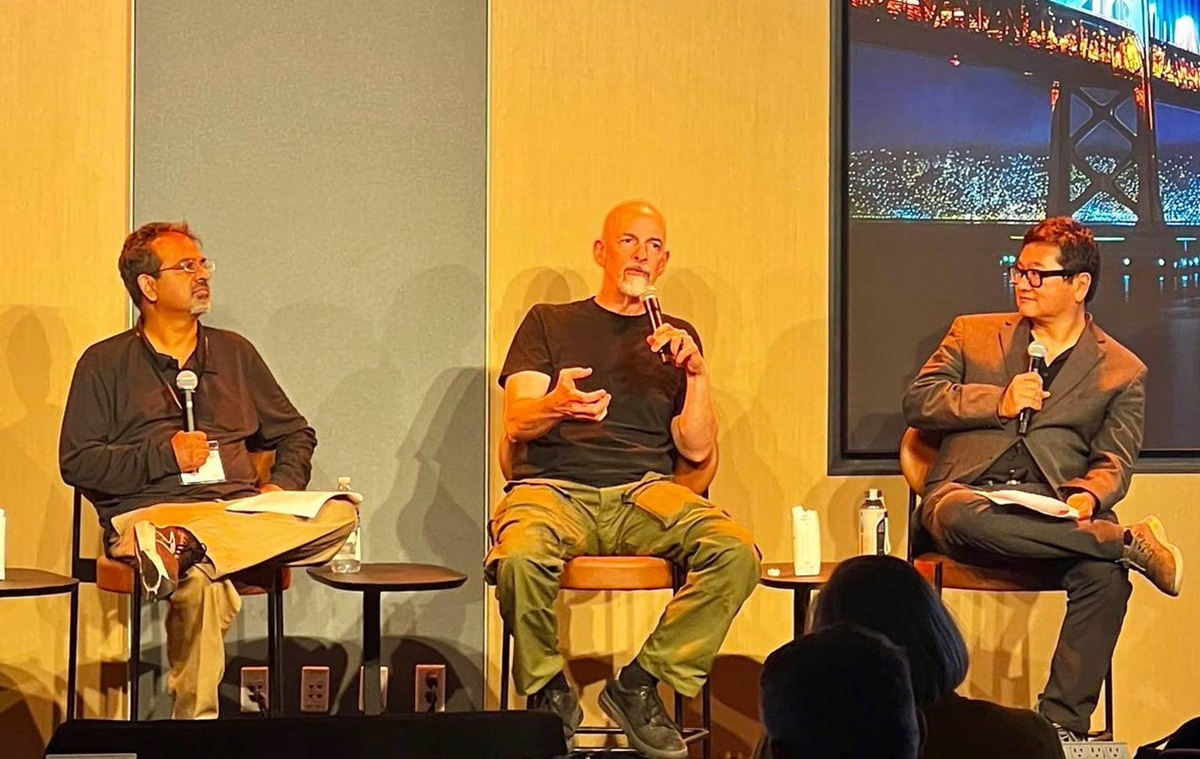category web3 news]
Neal Stephenson, the acclaimed author who coined the term “metaverse” in his 1992 novel *Snow Crash*, recently shared his insights on the future of this evolving digital universe during the GamesBeat Next 2024 event. He emphasizes a definition of the metaverse that encapsulates a “massively multiplayer online universe” with a shared spatial experience where users can interact seamlessly, regardless of physical presence. This interaction is not confined to a single entity, allowing for contributions from a diverse range of creators.
As the conversation around the metaverse continues to evolve, Stephenson’s perspective suggests that the concept is akin to a stock whose value fluctuates based on public engagement and innovative applications. Games like Fortnite, Minecraft, and Roblox have contributed to the perception of the metaverse, suggesting that while the ideal metaverse may still be on the horizon, there are significant strides being made in its development.
The Role of AI in Storytelling within the Metaverse
A significant portion of the discussion focused on the integration of artificial intelligence (AI) in enhancing storytelling within the metaverse. Stephenson, who co-founded Whenere, a platform merging AI and narrative creation, believes in the potential of AI tools to enrich creative expression without replacing the human element of storytelling. While some creators are leveraging AI to generate narratives, Stephenson maintains that the act of writing itself is a deeply personal and enjoyable pursuit, one that he does not wish to delegate to machines.
The Whenere project, which initially began with a character from the *Snow Crash* universe, has pivoted to explore the world of Jane Austen’s *Pride and Prejudice*. This transition underscores the platform’s focus on linear narratives, allowing users to engage with established stories while creating their own unique experiences. This approach not only respects the integrity of the original narratives but also encourages users to explore storytelling in a structured yet immersive environment.
Addressing Concerns of Reality and Authenticity
In an age where distinguishing between reality and virtual experiences is increasingly challenging, Stephenson expressed concerns about the implications of this blurred line. He noted that many individuals struggle to discern what is real, a sentiment that resonates with the current societal landscape. This challenge is compounded by technological advancements, including smart NPCs powered by advanced AI, which can simulate human-like interactions within virtual spaces.
As the metaverse continues to develop, Stephenson highlights the importance of maintaining a clear understanding of reality versus simulation. He advocates for a thoughtful approach to technological integration, ensuring that tools like AI enhance rather than obscure the human experience.
The Importance of Ethical Considerations in Technological Development
Both Stephenson and his co-moderator, Riz Virk, touched on the ethical considerations surrounding the use of AI and blockchain technology in the metaverse. Stephenson acknowledged the skepticism surrounding these technologies, particularly concerning data provenance and ethical implications. He emphasized the need for transparency and accountability, particularly as creators seek to monetize their contributions within a decentralized digital ecosystem.
Lamina1, a blockchain initiative co-founded by Stephenson, aims to provide a framework for creators to track their contributions to the metaverse while ensuring fair compensation. This project embodies the belief that an open metaverse should not be dominated by a single entity but instead foster a collaborative environment where creators can thrive.
Imagining the Future of Gaming and Interaction
As the conversation progressed, Stephenson and Virk explored the future of gaming interaction. With the rise of voice recognition technology, the potential for immersive interactions in gaming environments is expanding. Stephenson envisions a shift from traditional point-and-click interfaces to more dynamic, conversational interactions, which could revolutionize how players engage with game worlds.
This evolution aligns with the broader trend of integrating AI into gaming, enabling players to experience more natural and intuitive interactions. The future may see a fusion of storytelling, gaming, and AI technology that enhances user experiences in unprecedented ways.
Reflections on the Influence of Science Fiction on Real-World Innovation
Throughout the discussion, Stephenson reflected on the impact of science fiction on real-world technological advancements. His works have inspired countless innovators and creators, serving as a blueprint for the possibilities of the future. The notion that science fiction can shape the trajectory of technological development is a powerful reminder of the interconnectedness of imagination and reality.
In a world rife with challenges, from environmental concerns to the ethical implications of AI, Stephenson underscores the importance of visionary thinking. He advocates for science fiction that inspires rather than instills fear, encouraging a focus on solutions and positive outcomes.
Looking Ahead: The Journey Towards an Open Metaverse
As we stand at the precipice of a transformative era, the vision of an open metaverse continues to take shape. With thought leaders like Neal Stephenson at the forefront, the discourse surrounding the metaverse is not merely about technology but about the fundamental human experience. The journey towards this digital frontier will require collaboration, creativity, and a commitment to ethical principles, ensuring that as we advance, we do so with a clear sense of purpose.
GVS











